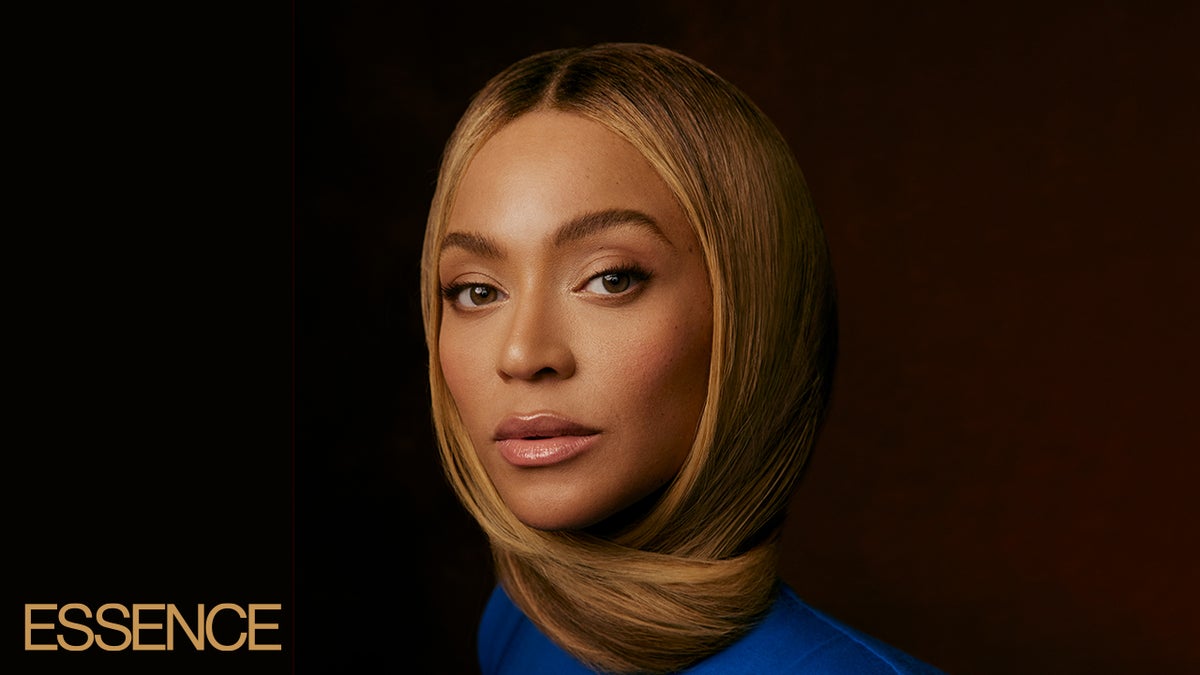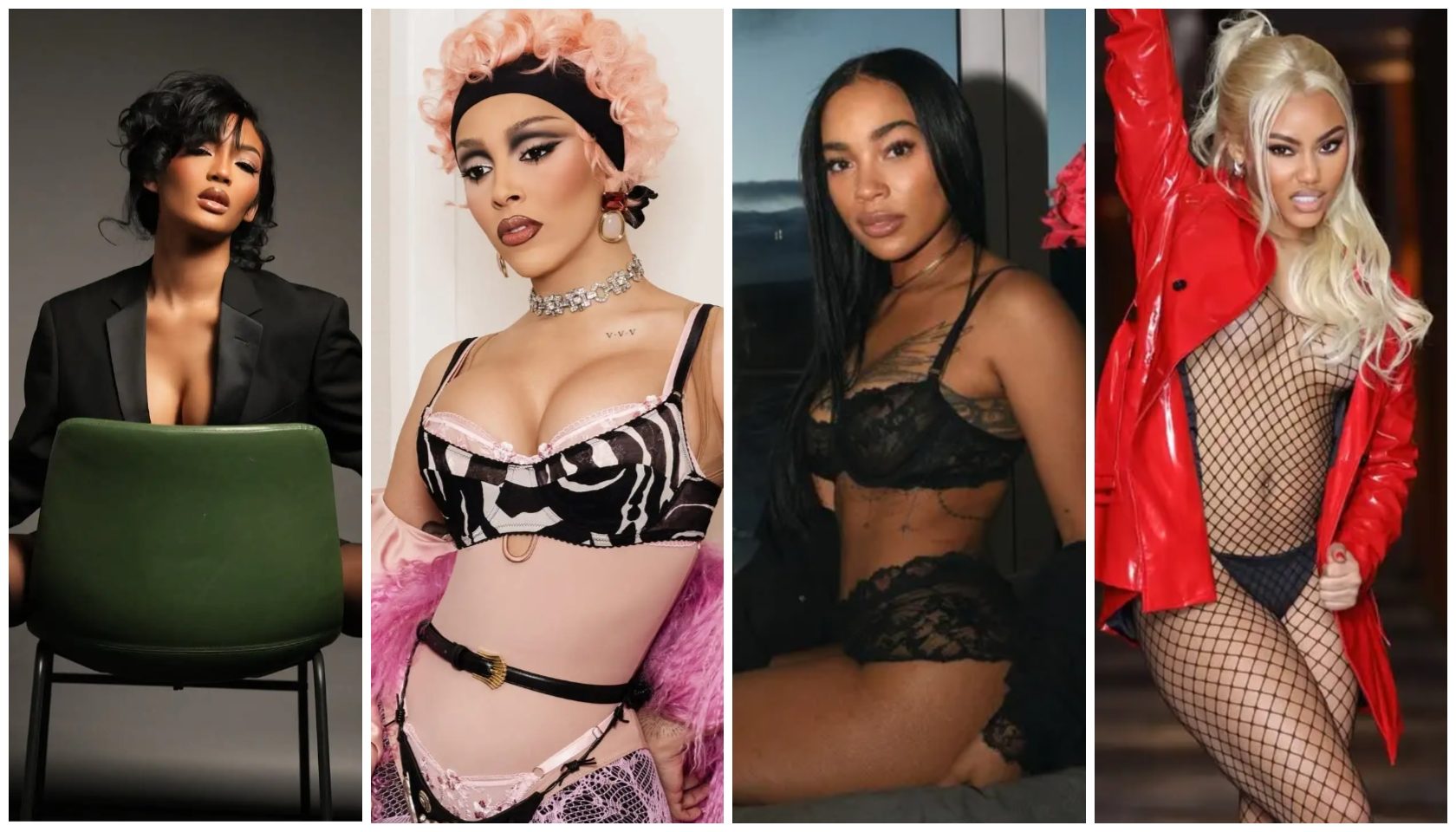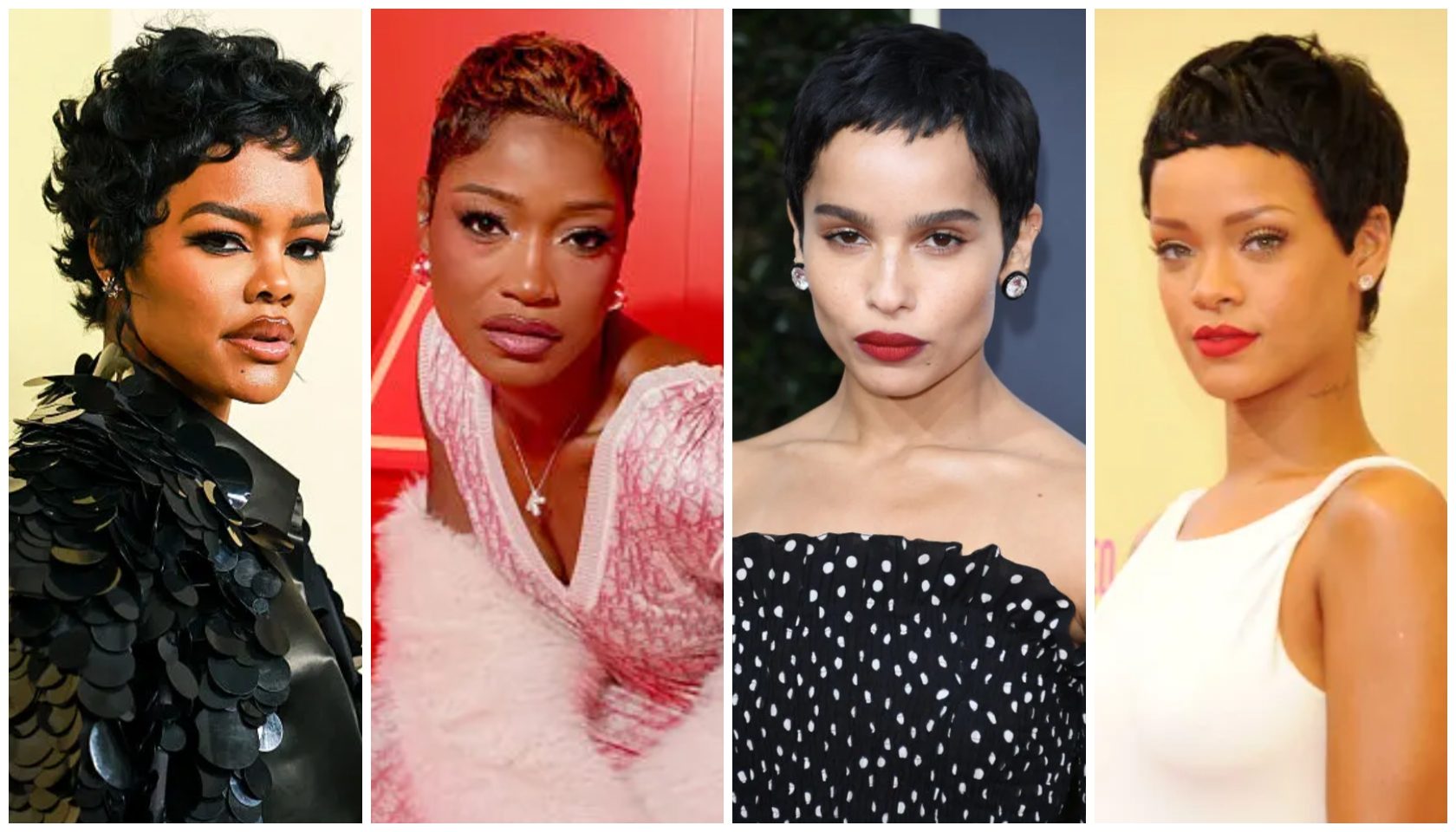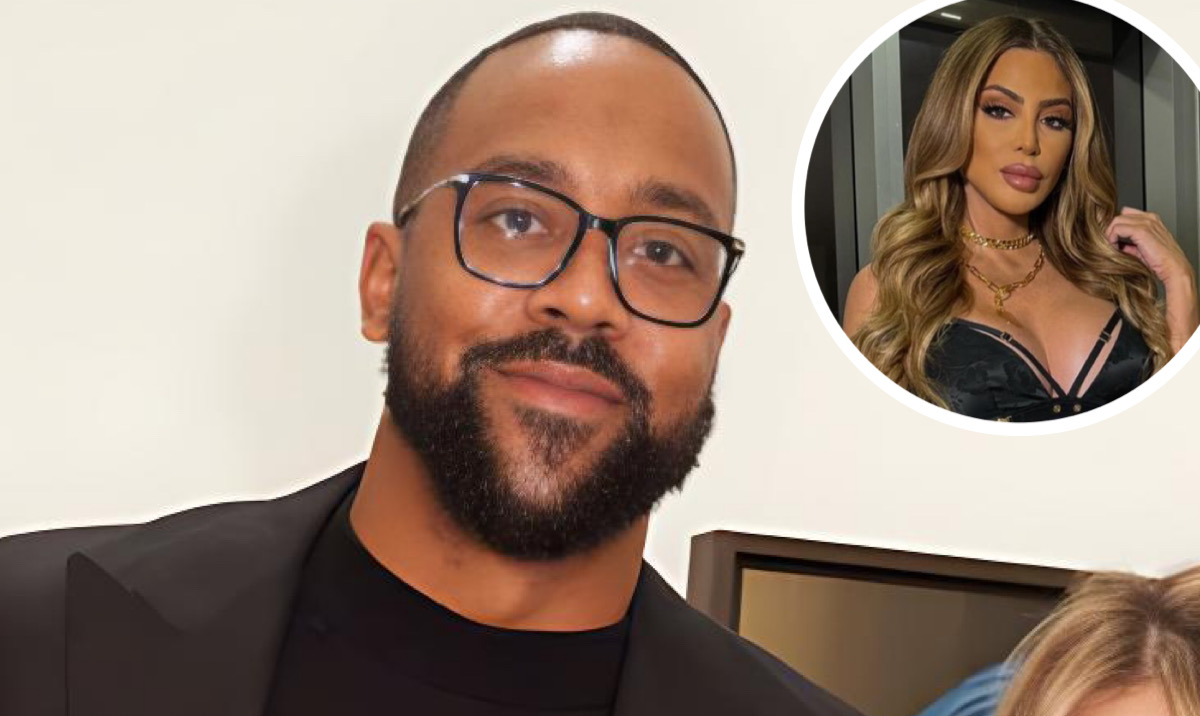Beyoncé Knowles-Carter wears quite a few hats. She juggles life as a married mother of three with being the greatest living entertainer—two undertakings that are brain- and body-bending separately, and nearly inconceivable when combined. Her pointed manicures are the needle under which global interest spins. One hip bounce, one social post, one brand mention: That’s all it takes to send the public into orbit. She’s mentor, mountain, and muse—every woman and every woman. Over the years she’s launched multiple ventures, including House of Deréon, Parkwood Entertainment, BeyGOOD and IVY PARK.Her latest undertaking has technically been on the burner since her youth—but more tangibly since 2018. It branches from her family’s generational focus on hair, taking root in the idea of self-care as ritual. She first teased the project in May 2023 via Instagram, where fans assumed the sprays and pumps before her were filled with self-made hair elixirs. She, and all involved, have been characteristically mum about the offering—until now.
Beyonce for ESSENCE March/April Beauty Issue on stands Feb 27.
“Hair has always been a very big part of our lives,” says Ms. Tina Knowles. “Just as fashion saved our family, hair is how we made a living.” In Beyoncé’s formative years, Ms. Tina was a hairdresser who owned and operated her own salon. She says her career in cosmetology is but a continuation of what Black people have done for ages. “In the culture of Black folks, all the way from the beginning: If you could do some hair, you’ll never be broke,” she explains. “I told my kids that. My mama told me that. So it’s just our legacy, and this full-circle moment feels amazing.”
The brand is called Cécred, a portmanteau of the singer’s name and the reverence she has for her own hair, and others’. Throughout centuries and across nations, hair has symbolized power for both owners and institutions. It is almost treated as separate from the body and more in line with the inner being. In acknowledgment of hair’s distinct role in life and culture, and out of longstanding interest in its wellness, Beyoncé formulated the eight-piece collection, due out February 20 on Cécred.com. It includes a clarifying shampoo and scalp scrub, hydrating shampoo, moisturizing deep conditioner, a reconstructing treatment mask, a moisture-sealing lotion, a nourishing hair oil, a fermented rice and rose ritual treatment, and a “shaking vessel” that allows you to blend the ritual treatment. Together, they’ll strengthen and smooth the hair, and also help it recover from any damage. The entire line is made possible through the advent of a custom technology: a patent-pending bioactive keratin ferment. Naturally, it’s infused with honey.
Fittingly, Destiny’s Child first topped the Billboard Hot 100 with “Bills, Bills, Bills,” which had a music video that took place in a hair salon. It was an homage to the environment that birthed Beyoncé and is evidence of her enduring interest in hair. More recently, the music mogul’s “Formation” video included a scene shot in a beauty-supply store. Yet Beyoncé isn’t the first in her family to make hair products; her mother once blended up her own formulas, too. “Of course, I became a mixologist,” Ms. Tina says. “Back then there was no one product that mixed high-tech hair care with the nourishing moisturizers and oils so vital to textured or color-treated hair, so I mixed the two. I was told Black women’s hair could not have color and perm at the same time. I proved that theory wrong. Now Cécred has the latest science with tried-and-true rituals passed down from generations before.”
Ms. Tina’s parents were Louisiana natives, a fact Beyoncé declares with pride. As the singer’s grandmother, Agnéz Deréon, was coming up, an innovative entrepreneur, also from Louisiana, was becoming a pivotal presence in Black history. Madam C.J. Walker is regarded as the first woman to become a millionaire by her own means. Her cause was righteous. In the aftermath of the Reconstruction era, and with the introduction of Jim Crow, Black Americans continued to be socially and economically trampled, leaving many without the tools to effectively care for their hair. After experiencing her own hair trials, Walker blended well-known ingredients and founded an eponymous hair business. Of Walker, it was widely said that “as a hair grower, she has no equal.’’ She was a star who fought for her own glimmer—and was determined to help others uncover theirs as well. Those who understand the significance of her hair and scalp treatments intimately are able to recognize her sincerity and communal investment. Over 100 years later, another Southern, empire-minded talent is offering up her own hair recipes.
“My mom would say, ‘Go put some grease in your hair because it looks really dry,’ and that meant oiling it and keeping it moisturized,” Ms. Tina says of the messages she received in her family growing up. “So all of those things that my mom did, like using olive oil and honey and egg whites for the protein, were all good for our hair and also for a good old press. These are all tips from my mom, and she just passed them all down.”
The framing of Cécred as an ambitious stake in the earth, as well as Beyoncé’s rightful inheritance, cannot be understated. It is the fruit of her labor. Now, as the founder and chairwoman of her own hair care brand, she stands on the shoulders of women who loved her before she was born. She seeks to honor them at every turn, which means even the most minuscule aspects of the line were assiduously designed. Nothing can be amiss, because she feels that this is bigger than her. And, as she shares with ESSENCE, she’s ready for the past and the future to finally meet.
ESSENCE: You’ve talked about your experiences growing up in your mother’s salon. Can you tell us a bit more about your time there?
Beyoncé: I have vivid memories of my mother working as a hairstylist right from our home. She built a small salon at the back of our house, and I can recall catching glimpses of her while I watched cartoons or played with my dolls and toys. These moments are etched into every corner of my childhood memories.
I saw her shampooing and trimming hair, transforming women, leaving them feeling really good. Looking back, it was more than just a hair appointment—it was therapy. I worked in her salon, sweeping the floors and helping out where I could. I used to eavesdrop and listen in on their conversations intently. It was a sacred space for these women. She was so good and so talented that eventually, her clientele outgrew her at-home salon. So that’s when she opened her first hair salon, Headliners. I remember the early sketches and my mom inviting me to be a part of the design process, even though I was just a youngin’. But that’s my mother. Our family has always had the spirit of collaboration.
My mom had a roster of amazing clients at her salon, and while the environment was therapeutic for them, it was also for me. She found a therapist for me, during a period when I was extremely introverted and hardly spoke. It was in her salon that I realized my dreams of being a performer—inspired by one of her clients who happened to be an opera singer. I was captivated by her stories of a recent trip to Germany. In awe, I distinctly remember telling my mom that I wanted to be just like her client.So much of the fabric of who I am came from her salon. It is something that just connects to all of my senses, and it’s a beautiful place to grow up. That’s my foundation—and I think as an artist, so much of my bold experimentation with hair comes from being inspired by art and sculptures; getting creative with braids; figuring out new techniques; and exploring ways to maintain hair growth with protective styles and wigs, while still feeling fabulous. It all stems from my experiences growing up in my mother’s salon.
You famously cut your hair into a pixie in 2013 and had swaths of women following suit. What can you share with us about that decision? Did it reflect a kind of life change?
It did. That’s right. I love how we associate a certain hairstyle with moments in our lives, like that short-hair moment. I remember the day I decided to just cut all my hair off. I didn’t have a particular style in mind. It wasn’t an aesthetic choice, but it was a very big emotional transformation and metamorphosis that I was going through. So much of my identity as a performer has been connected to flowing hair. Cutting my hair off was me rebelling against being this woman that society thinks I’m supposed to be. I was a new mother, and something about the liberation of becoming a mother made me want to just shed all of that. It was a physical representation of me shedding the expectations put upon me. I just wanted it off. Neal Farinah, my hairstylist and friend, was freaking out because it was really long, really thick and really healthy. I just got the scissors and chopped it off. It was very intentional. And it was what I needed to do. And after that, I became super brave. It was the first step to many more audacious decisions I made in my life and my career that have led to who I am now.
We’ve seen you rock an array of hairstyles—from braids to an Afro to teased curls—all while leaning into your signature blonde. How do you maintain hair health while having dyed hair?What saves my hair is the technology in the formula we created for our Cécred products. It’s a fermentation made from honey and keratin that helps to stop my hair from breaking and brings the shine back. The technology in the products is effective enough that I don’t need to over-manipulate my hair while I shampoo.
A lot of people don’t know how easy it is to have buildup on your hair from overusing the wrong products. The buildup prevents the hair from receiving the best results from the products. I try to be gentle with my hair. The lather in our silicone-free Clarifying Shampoo and Scalp Scrub is so relaxing, and it gets my hair and scalp so clean without stripping away the moisture.In addition to using the products, I wear my hair pressed, colored, ironed and natural as much as I wear protective styles, depending on what I’m doing. I also use oil for my scalp underneath the braids. When I take my braids down, I focus on cleansing and moisturizing my hair before putting it back up into a protective style. I like to look at these routines more like rituals, because the care and love you give your hair is a special, intimate process that we tend to overlook.
What does the name Cécred mean to you? How did you come up with it?
I have many beautiful memories attached to my hair. The relationship we have with our hair is such a deeply personal journey. From spending my childhood in my mother’s salon to my father applying oil on my scalp to treat my psoriasis— these moments have been sacred to me.The conversations and debates in the salons and barbershops create a sense of community for the people who look to it as a retreat from their everyday lives. For them, it’s a place to feel beautiful and vent, laugh, share secrets and pass down wisdom. It’s the most consistent community gathering we have. It’s so important that it’s a sanctuary.
I think that connection of community, mother and child, father and child, and respect— and allowing yourself to be taken care of, especially for Black women, who are always taking care of everyone else—it’s all sacred. So I took the end of my name, Cé, and made it the beginning of the word sacred to create Cécred. From my mother’s salon, daily rituals with my father, and years of experience in developing a hair care line, the journey has been just that: Cécred.
You’ve been an entrepreneur for nearly two decades. One of your earliest pursuits, House of Deréon, was done in collaboration with your mother, Tina Knowles. What are some words of wisdom you’ve gleaned from her?
I woke up this morning, said my prayers, and really thought about the fact that my mom and I have been talking about this [hair care line] since I was a teenager. And what an honor to be able to do something so special with my mother, and to be able to share that with the world. This is meaningful. She’s a visionary and a brilliant woman and has worked so hard on this brand alongside me. She’s such a gift, and this is a bit surreal for me that it is finally here. It feels like all of her life’s learning, her 70 years, and now my 42 years, are generational and meant to be. Honoring the legacy and the wisdom passed down through generations, and mixing it with science and technology, is part of this line. It was important that we borrowed some of our past and brought it into the future.
This is more than a business to you—it is a part of your birthright. How do you mingle the deeply personal with the professional while prioritizing that it remains sacred?
My priorities are quality and intention. It was important to decide where we invested in our formulations. I knew what I wanted to do, with technology that works for all women and all textures, because I had not been able to find it. I built this from the ground up and funded it myself. First, I had to find the right team with the best experience who also shared my beliefs. This business was led by heart and passion, not by a business plan. We went above and beyond to make decisions based on results and the absolute best science. And better results meant more investment in quality products. Every hair texture deserves testing, research and development. Black women in general are the last to be included in testing. We are often prescribed things based on studies we were not included in. It’s bigger than me, or hair. Now we have created something that celebrates healthy hair for all women, including us. I’m always honored to invest in us.
Cécred is a legacy project for me, one that’s probably the most rooted in my ancestry. It’s so far beyond business. Hair is our lineage; it’s our family story. Having access to proven ingredients, and creating our own technology that is patent-pending—we now have a line that works universally.
What’s your nightly hair routine? Are there any tips or tricks you incorporate?
It’s all about moisture for me—adding oil to my scalp and covering my hair at night so the oils could penetrate. It brings back such great memories of my rituals as a child to maintain a healthy scalp. I wrap my hair up and sometimes sleep in some cute rollers with a net or bonnet, depending on how I am wearing my hair. I try to avoid friction, my hair reverting and using unnecessary heat.
Black women’s sense of self is so often connected to their hair. How do we allow it to bring us joy and accentuate who we are, without it completely defining our personhood?We can wear our hair natural, straight, braids, weaves and wigs. There’s power in self-expression and in feeling free to show up as we choose, in whatever hair we choose. For me, joy comes from making myself a priority and making my hair a priority. It is really important for me to make time for the sacred rituals of self-care.
One hair ritual I always used was fermented rice water. We put our own spin on it and figured out how to turn it into a powder. All you need to do is add water, so it’s much easier and instant— plus we added rose, so it smells beautiful. I do this when my hair needs it, after I color my hair, after a tour. It’s healing for my hair but also for me. I think one of the beautiful things that inspired this line was respecting these ancient traditions and mixing them with technology and science.
Who are you looking to serve with your hair care line?
I saw in my mother’s hair salon that any textured hair could be healthy and could have growth when properly nurtured. I learned that textured hair could be colored. That women of all races can have fun with different styles and still keep their hair healthy. I picked up many techniques from working with the best hairstylists in the world. Hair is not one-size-fits-all. I see certain types of hair that have multiple textures on one head. Depending on the porosity, the density, the thickness of your hair, if it’s color-treated, if your hair is relaxed—your prescription has to be personalized. I hope we can honor the sacred rituals of our past while providing education and cutting-edge science to the hair care community.
Being the boss is big business. The calls, the tests. Natural pauses and sign-offs. Limbs bent before a glowing laptop. It’s a winding cycle our Beyoncé knows well. It’s also one she embraces. We’ve seen her in action: intrinsically motivated, serious and fixed on a jaw-dropping outcome. It’s in these moments of construction that she’s in her flow, tinkering with the seemingly invisible pieces until all is in place. When you see it actualized, you realize there was never an insignificant part. A visionary knows that before the work has even begun.
In the world of Cécred, Beyoncé is dealing in two worlds she’s grown accustomed to. The separation of business and her heart’s callings isn’t present for her. Each commercial move appears to be guided by a deeper, personal purpose. This has brought about a noticeable freedom that we’ve seen surge through her yields in increasing amounts. Over 25 years into her mainstream career, she’s found her own way to guide, give meaning and let her hair down. Sacred indeed
Cécred, launched Feb 20 on cecred.com
Photographed by Andre D. Wagner
Written by Brooklyn White-Grier
Styled by Shiona TuriniHair Stylist: Neal Farinah at Draped Collective using Cécred Hair Collection Makeup: Rokael using Rokael Beauty at Opus BeautyNail Technician: Miho Okawara (MiHONAiLS)Set Design by Bette Adams at MHS Artists
Photography Assistants: Tyler Woodford and Juliet WolfLighting Director: Tutu LeeLighting Team: Zack Bartlett, Jake Reardon, Hisham Abahusayn, and Jason Capistrano Digital Technician: Maria Toncoso Gibbs
Wardrobe Supervisor: Ryan Dodson at ParkwoodStylist Assistants: Milton Dixon, EJ Ellison, and Jaiin KangHair Team: Nakia Rachon at Parkwood, Ziff AnthonyMakeup Assistant: Sarah ThackerNail Assistant: Ayumi NamaizawaSet Assistants: Nicky Buzzerio, Christian Senrud, George Deacon, M Czerwinski, Graham Law, and David RoseTailors: Tim White and Shirlee Idzakovich
Production by The Morrison GroupAssistant Directors: Ryan Bremond and Myeka WilliamsProduction Managers: Alaura Wong and Christina NajarProduction Assistants: Jordan Mack, Dion O’Joe, Danica Morrison, and Frankie Benkovic
Shot at Milk StudiosSpecial Thanks to Cécred and Parkwood Entertainment creative teams, Blond, L’Ermitage Beverly Hills & Love Catering







